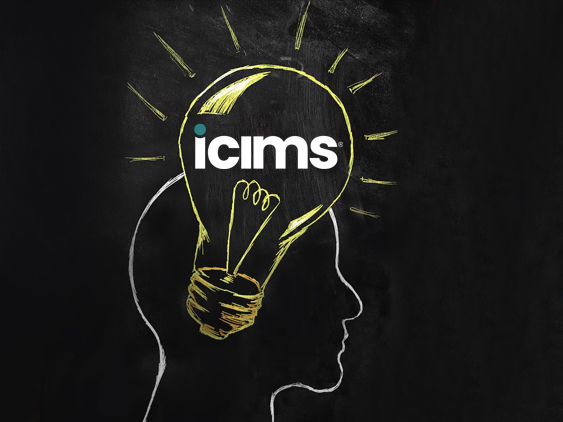The iCIMS 2023 Talent Experience Report spotlights what candidates really want from an employer and how the hiring process can impact their outlook on a brand
Great experiences lead to great hires, and new research reveals a subpar talent experience could impact a company’s bottom line.iCIMS, the talent cloud company, published the 2023 Talent Experience Report, revealing that 56% of workers are less likely to be a consumer of a brand if they had a bad experience applying or interviewing for a job.
Recommended : HRTech Interview With Joanna Daly, Chief Human Resources Officer At Elastic
Informed by proprietary data from the iCIMS platform and a survey of 1,000 U.S. job seekers, the new report digs into what talent expects from employers during the job search, application and hiring processes – as well as internal mobility and career pathing – and how employers have pivoted to meet those expectations to achieve business success.
“Providing a great experience for your internal and external job candidates is no longer a ‘nice to have’ — today it affects the bottom line and is critical for businesses to get right,” said Laura Coccaro, chief people officer, iCIMS. “The data in this report can help talent acquisition leaders identify their strategic focus areas and continue to build a business case for making investments there.”
From finding a job to climbing the ladder, internal and external job seekers expect a seamless and personalized experience built with the right tools. Here’s what talent (actually) wants and how brands are meeting those expectations:
- An application process that doesn’t leave them in the dark. An overwhelming 80% of job seekers said that getting status updates during the application process would not only improve their experience but also their perception of an employer. Alternatively, respondents cited a lack of communication from an employer as one of the most frustrating aspects of the job application process.
- Personalized touchpoints with organizations that they are interested in. More than 40% of respondents described their last job search as frustrating and long, and a whopping 72% expect the job application process – from submitting the application to receiving an offer – to take 3 weeks or less. To minimize frustration and speed up the process, employers must provide candidates with personalized touchpoints, including relevant updates, recommendations for open jobs based on their skills and experience, recent news and employee videos.
- A communication process that meets them where they are. Like most healthy relationships, communication is a key ingredient between talent and employers. When getting in touch with talent, almost half (47%) say that texting is their preferred form of communication, while more than half (56%) ranked getting a phone call at the bottom of their communication preferences. Email isn’t dead, either: 36% of respondents said that they would be more likely to click on an email from an employer that included job roles that matched their skills and experience.
- An opportunity to tap into generative AI. As ChatGPT and its generative AI counterparts become mainstream, workers’ perceptions of the technology are evolving. 40% of people are open to the use of AI in the workplace, and about 20% of people are more open to using it than they were six months ago. In fact, 17% have already used it to write a resume or cover letter in their job search. Increased candidate interest in AI, coupled with recruiters’ need to streamline and enhance their efforts, signals an opportunity to bring more AI technology to the recruitment process.
- The chance to spread their career wings. When asked what would keep respondents happy with their current employer and prevent them from looking for a new job, 34% said support and guidance to grow in their role at the organization, 31% said opportunities to advance in a new role and 21% said opportunities to develop new skills. Yet, an overwhelming 64% of respondents said their manager does not proactively ask them about their career path and help them build their skillset and advance their careers.
Recommended : 5 Biggest Challenges In Developing Potent Skilled AI Workforce
“It’s not about ‘consumerizing’ the entire experience — it’s about humanizing it,” said Jess Von Bank, global leader, workforce technology, Mercer | Leapgen. “We have so much technology to help us do all of this; it’s baffling we don’t put it to good use. iCIMS shrinks time to apply, talks to people in the channels they prefer, lets organizational culture and employee testimonials shine through and treats job seekers like a brand community (which they are).”
Customers like The Wendy’s Company, The Cheesecake Factory and Suncoast Credit Union are already creating exceptional talent experiences with iCIMS:
- A job application that’s a piece of cake. The Cheesecake Factory made it easy to apply from a phone, including via text. Today, 60-75% of the company’s applications come from mobile devices. Additional nips and tucks also saw their application completion rate jump from 39% to 71%.
- Do you want a Frosty with that job application? When The Wendy’s Company activated their chatbot named “Patty,” time to apply and schedule an interview shrunk to under two minutes. As a result, the median time from apply to hire is five days for 80% of candidates.
- From SMS to ROI. Suncoast Credit Union sent out more than 2,000 text messages to prime potential candidates for an upcoming job fair. While other businesses at the job fair signed two or three employees, Suncoast signed nearly 30, helping to surpass its quarterly hiring goal by 119%.
Recommended Featured: 10 Applications Of Data Science In The HR Domain
[To share your insights with us, please write to sghosh@martechseries.com]

